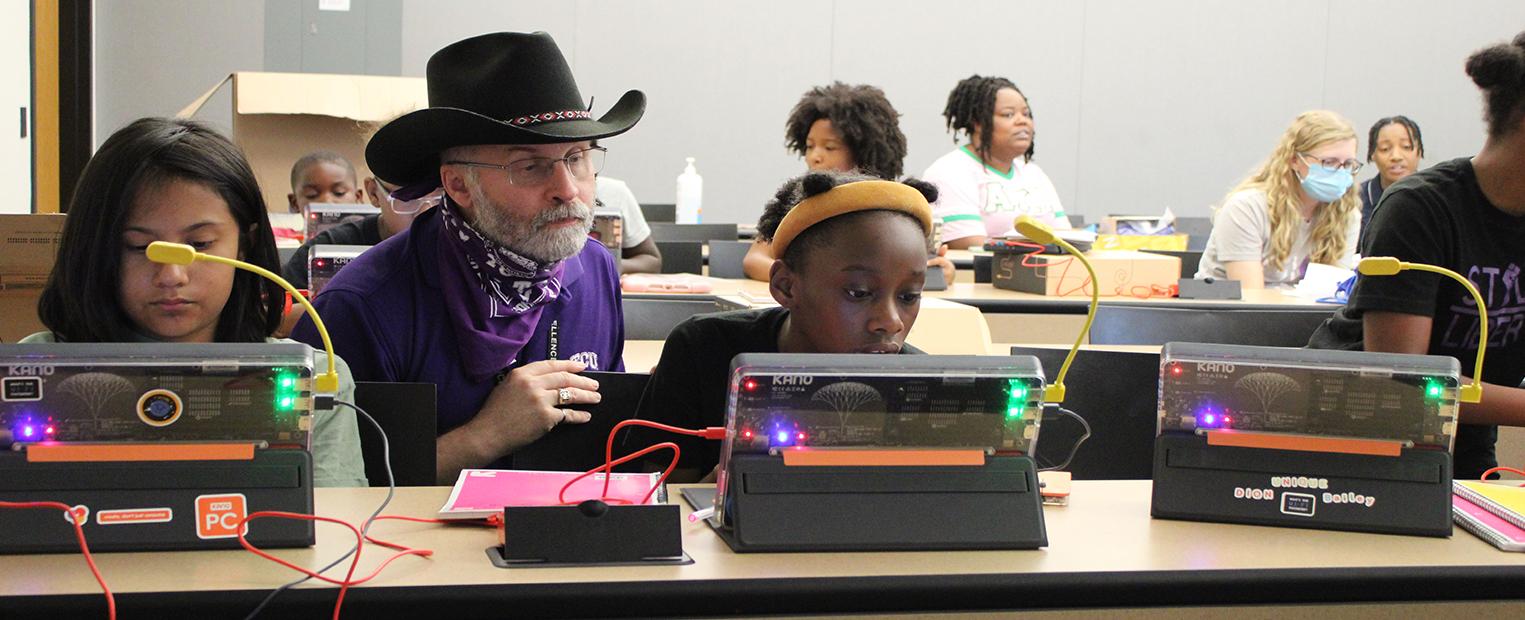Like many students in our community, 9-year-old Solomon Grayson had to rapidly adapt to online learning in the last year and a half. However, he was presented with an additional hurdle…limited computer access at home. Considering how much schools have relied and are still relying on the internet to enable remote learning during a pandemic, students who aren’t able to get online with the same consistency as their classmates are projected to have more severe learning loss and are more likely to drop out of school.
This digital divide occurs when there is a chasm between those who have access to modern information and communications technology and those that don't or have restricted access to personal computers and internet connectivity. In a series of reports on the digital divide for K-12 students developed by Boston Consulting Group in partnership with the Southern Education Foundation, research shows those who lack access to devices and broadband services have GPAs that are 0.4 points lower than their peers with reliable access.
To address this concern, one Fort Worth organization sprang to action. The Atatiana Project initiated plans for a summer camp in which children with limited or no computer access would receive a free laptop to utilize for furthering their education. Established by Ashley Carr for her late sister, Atatiana Jefferson, who was tragically killed in her home by a Fort Worth police officer in 2019, the Atatiana Project works to create a livable environment between the urban community and the police. Jefferson graduated with a degree in biology and had hopes of going back to school, becoming a doctor and helping find a cure for diabetes, with which she had been diagnosed at a young age.
Carr says the idea for the summer camp came from issues that arose during the pandemic. “A lot of children don’t have a computer in their household. Many of the school districts aren’t equipped to provide a majority of students with computer access. Or there could be multiple children in a home but only one device. We wanted to solve that problem, so we reached out to Emily Herzig at TCU. They were eager to help.”
Solomon’s mother, Pamela Grayson, says that computer access is imperative to her son’s home-schooling. She is an online instructor, director at Collective Activism Social Justice Coordination Center, Inc., and she serves as an advisory board member for the Atatiana Project. Pamela says that after summer camp, Solomon is thinking about a future in technology. “In addition to the obvious takeaways from the camp, Solomon really enjoyed the comradery with his fellow campers,” she says.
Seventeen children attended the summer camp at TCU on July 19-23. Herzig, an instructor in the Department of Mathematics, partnered with Curt Larsen, professor of professional practice in the College of Science & Engineering, in the camp effort, helping students assemble a computer from a kit and teaching them how to program and use it. Larsen says, “I have great admiration for the family for turning a tragedy into a triumph for the future of these kids. Education and opportunity for all are supposed to be bedrocks of the American ideal, and who knows what a few hours with the kids might bring?”
Herzig says, “The ages of the children who participated ranged from 5 – 13. During the camp session, they were able to learn basic coding and experience a week on a college campus.” Each student who attended received free meals, a backpack, and a laptop computer. They also interacted and shared lunch breaks with TCU student volunteers and faculty. “My favorite part about camp was working with my partner to build my computer. It was also cool to get to meet the TCU women’s basketball team,” Solomon says.
“We want to expose these kids to college life as early as possible and make them understand that college is tangible and not some foreign concept. The goal of the camp is to educate, inspire and grow the next generation in hope to prepare them for the future and provide them with access to opportunity,” Carr says. “My sister loved gaming but helping others was her life. In her memory, we want to show kids that science and technology aren’t boring.”
Learn more about The Atatiana Project.
